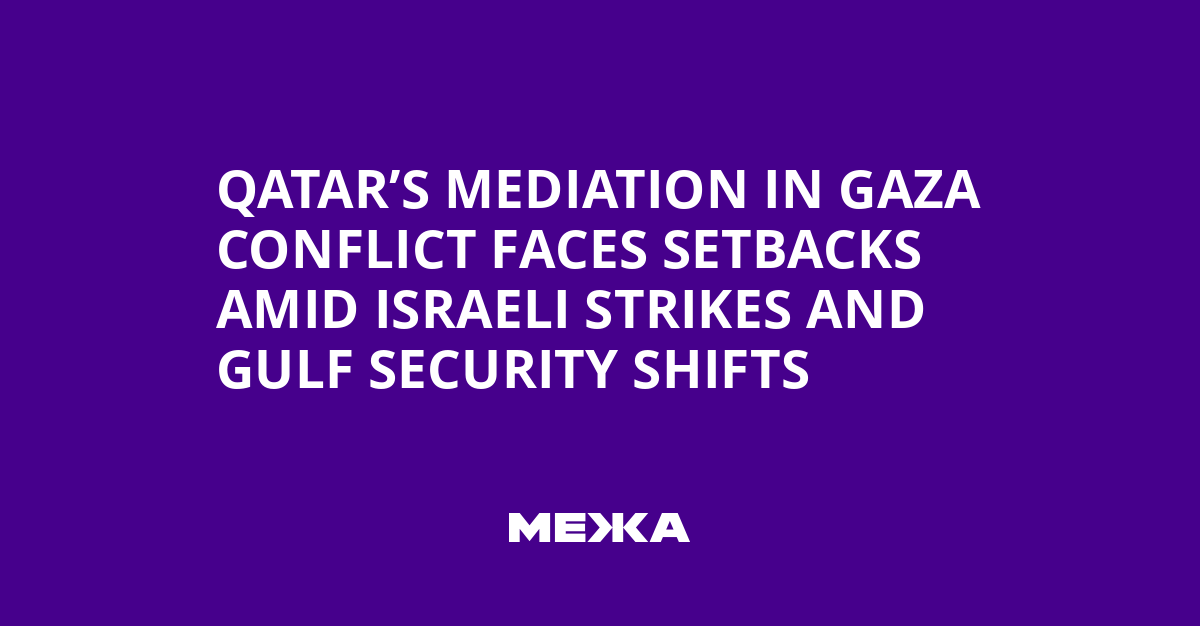Qatar might have seemed that its fate would remain separate from the Israeli strike, but the latest events dispelled this illusion. The Persian Gulf became a stage for complex diplomatic maneuvers: a US ally, Doha not only hosted guests with substantial budgets, but also gave security questions special meaning through the inherited controversial presidential jet.
In the context of mediation to end the war in Gaza, Qatar took an active role. Prime Minister Sheikh Mohammed bin Abdulrahman bin Jassim Al-Thani personally met Khalil al-Hayya, the Hamas leader, to push a new ceasefire format with US support and a prisoner-exchange deal.
The response was swift: a few hours before the planned meeting Israeli fighter jets struck a residential building in Doha, killing five Hamas members and one Qatari security guard. In the capital, there is shock and disappointment at the sharp escalation of tensions ahead of the next round of negotiations.
In an interview with CNN’s Becky Anderson, he called the attack “state terrorism” and warned Israeli Prime Minister Benjamin Netanyahu that he has “killed any hope” for the hostages and undermines “any chance for peace.” He also said that the Israeli leader must be “held accountable,” accusing him of violating “every international law.”
– Sheikh Mohammed bin Abdulrahman bin Jassim Al-Thani
Global context and regional implications
Qatar also figures as a participant who took responsibility in its relations with the United States during recent crisis events in the region, notably after the strikes on the Al-Udeid base – the largest U.S. military base in the Middle East. Tehran said it was in response to the United States’ actions regarding its nuclear facilities. Doha condemned the attack but did not express readiness for immediate steps in reply.
These events go beyond strictly Qatari policy and cast doubt on the traditional nature of the region’s engagement with Washington. The Gulf countries, which for decades built close economic and military ties with the United States, are now forced to rethink the benefits of existing formats of cooperation and choose a new security architecture.
In the context of concluded deals and mutual security guarantees, the United States remained substantial, but its role may be revised. During meetings of the leaders of Saudi Arabia, Qatar, and the UAE, large financial packages and joint initiatives were discussed, but their real influence will now be measured by the countries’ ability to provide for their own defense without full dependence on the United States.
I think these countries will be thinking about what they can do to deter future attacks, – said Hasan Al-Hassan, a scholar at the Carnegie Endowment for International Peace, – but also what security architecture they now need to fit into, rather than relying on a partner who could not even defend them from one of its own allies.
– Hasan Al-Hassan
Trust between the United States and its regional partners has not yet been fully assessed; however, the scale of consequences will depend on how consistently Washington supports its allies and how it formulates its stance on Israel. It also raises questions about the impact of these events on future mediation efforts in the region.
Although Qatar does not close the door to a peaceful resolution of the Gaza issue, the current negotiations typically remain at the level of general statements or temporary agreements. According to analyst Hasan Al-Hassan, the main risk for the region lies in any mediation potentially spiraling into a new crisis due to rising tensions.
Qatar and Egypt have long been key mediators between Israel and Hamas, while Oman participates in dialogue between Iran and the United States, as well as between the United States and the rebels. The United Arab Emirates play a role in coordinating between Russia and Ukraine; Saudi Arabia aims to become a base for peace talks on several conflicts simultaneously.
That is the risk that many regional countries are not prepared to tolerate in exchange for the role of mediator.
– Hasan Al-Hassan
Leaders of these countries are closely watching the US response amid a noticeable drop in confidence in Washington’s ability to guarantee security in the region. There is also growing concern about whether peace initiatives will derail due to new escalation impulses and changes in relations with Israel.
Despite the difficulties, Qatar continues to seek avenues for a peaceful settlement in Gaza, but the negotiations remain in a suspended zone: open questions, limited steps, and a need for stable support from influential regional players and the United States. The latter underscores the necessity of balanced action and prudent diplomacy to avoid a fresh crisis and to enable a lasting peace in the Middle East.
